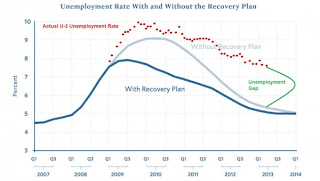Feminism and the Risk Factor...
by: Les Carpenter
Rational Nation USA
Purveyor of Truth
Came across an article in the FEDERALIST that is intriguing and thought provoking. It is one particular women's response to and article in the Atlantic and talks about risk taking and feminist perceived insecurities.
There are 6 more reflections so continue reading the rest BELOW THE FOLD
All comments are welcome but in this particular instance comments from the female set are especially encouraged.
Via: Memeorandum
Rational Nation USA
Purveyor of Truth
Came across an article in the FEDERALIST that is intriguing and thought provoking. It is one particular women's response to and article in the Atlantic and talks about risk taking and feminist perceived insecurities.
Why Are Feminists So Insecure? 6 Reflections On The Confidence Gap
I read the piece and was completely flummoxed by it, for a variety of reasons. Here are six reflections on the most serious problem of our era week: The Confidence Gap.
1) It isn’t about confidence.
The article is really about risk-taking and how men differ in their risk calculations from women. To give just two examples from the article, and to give you an idea of its tone:
“We watch our male colleagues take risks, while we hold back until we’re sure we are perfectly ready and perfectly qualified.”
“If a woman walks into her boss’s office with unsolicited opinions, speaks up first at meetings, or gives business advice above her pay grade, she risks being disliked or even—let’s be blunt—being labeled a bitch.”
Leaving aside the melodramatic stereotyping and bizarre generalizations about how people love unsolicited advice from men but abhor it from women, you’ll note that risk is the main ingredient in the supposed confidence gap.
2) Opportunity Cost. How does it work?
And in order to have a conversation about risk, it’s good to talk about opportunity cost, and even just the particular opportunity costs associated with risk-taking. We should look at how women, on average, value what they must trade in for the potential benefits of risk-taking. That’s not well discussed in the article.
Yes, men really do show, on average, a far greater proclivity for risk-taking. See, for example, all of human history. And they tend to have different calculuses about what they seek or are willing to make do with in terms of lifestyle and stress. It is true that risk-taking behavior works out very well for men. But it also works out horribly for them. How can that be? Well, they do have higher average outcomes than women. But when they fail, hoo-boy do they fail. We’re talking job loss, demotion, loss of status, physically problematic stress, serious inconsistency in pay, homelessness, prison, and so on and so forth.
None of the down-sides of risk taking are given proper weight, which makes the sloppily sourced article naive and unhelpful, at best. Maybe women should fight their nature and go match men in the CEO and imprisonment categories. I don’t know. But we should at least be honest that women choose less risky moves in part because they frequently don’t have to take risks like men do and frequently don’t want to take risks like men do.
The article also fails to note that women, on average, choose less risk for reasons having to do with things other than cash money. If you make one choice, you lose other choices. If you prefer making money and having a ton of power, you make different decisions than if you prefer having a nice work-life balance, a flexible schedule, non-remunerative benefits, and what not. The tradeoffs for risk-taking and aggression in a corporate environment might involve things that you are not comfortable giving up. This can be a bad thing, but it is by no means necessarily a bad thing. Either way, this issue should have been discussed far better.
3) Is second-guessing our nature really so empowering?
The article on developing confidence ends by telling women that their brains are malleable:
Almost daily, new evidence emerges of just how much our brains can change over the course of our lives, in response to shifting thought patterns and behavior. If we keep at it, if we channel our talent for hard work, we can make our brains more confidence-prone. What the neuroscientists call plasticity, we call hope.
Nothing shouts “be confident in your natural abilities!” like “your brain is mushy and able to be reshaped by propaganda!” But maybe that’s just me. Still, all this second-guessing of female traits doesn’t feel empowering. At all. Feminists seem to be on a constant campaign of obsessive gender reflection, the net result of which is to tell women they’re bad at what they’re doing. Don’t call bossy people bossy. Don’t be considerate of others. Please keep kids out of the picture for the vast majority if not entirety of your fertility. If you do choose to stop fighting your fertility for a brief period, you shouldn’t let kids affect your career. You need to crush or at least smother your maternal instincts at all costs. In order to succeed in life, you must be like men — emulate everything they’re doing.
I love being female, and I’m actually quite confident about being a woman, but the only time I even come close to feeling bad about myself is when major media outlets and elite feminists use their power to tell me there’s some major flaw with me being female.
Also, it’s kind of funny that the article is all about obsessive overthink keeping women from taking the risks they need to in order to succeed. I do hope that whoever wrote this at least noted that an article ostensibly against such overthinking ran 7,242 insufferable words. By the way, I challenge you to read the first section without gagging, either at the over-the-top generalizations about how universally awesome women are or about how victimized the elite authors are by their gaping self-doubt. The humblebrags in that section alone are epic. “Katty got a degree from a top university, speaks several languages” and yet thought “her public profile in America was thanks to her English accent.” Claire was CNN’s Moscow correspondent while in her 20s but supposedly deferred to the “alpha-male journalists around her, assuming that because they were so much louder, so much more certain, they just knew more.”
The thing is that even if we’re just talking about lower braggadocio levels, what if that’s an ingredient that makes women better at social bonding? Leadership is important to society. Absolutely. But so is a basic functioning community. Heck, call me a woman if you must, but I could make a good argument that community bonds are even more important than CEO leadership. There’s no reason that men and women must fill one or the other category (and every single person reading this knows men and women who fit various high-risk/low-risk/high-confidence/low-confidence categories) but neither do we need to insist on denigrating people who do the hard work of community bonding, whatever that given community is — in office environments, immediate families, extended families, local congregations, Brooklyn co-ops, boxing clubs, etc.
So if women have, as the article claims, a “part of the brain [that] helps us recognize errors and weigh options,” why do we want to get rid of it or curb it? Why are we ashamed of something that’s awesome? Why are feminists so down on women’s brains? I mean, again, leadership and risk-taking are great for humans. Don’t get me wrong. But so are wisdom and restraint.
There are 6 more reflections so continue reading the rest BELOW THE FOLD
All comments are welcome but in this particular instance comments from the female set are especially encouraged.
Via: Memeorandum







I prefer feminists like Christina Hoff Sommers and Camille Paglia; the lesser wussy ones.
ReplyDeleteI think the problem with conservative and libertarian philosophical arguments about risk behavior is they all assume that risk-taking is the prime mover of markets. For example, it's not that men take more risks than women any less than it is more men take risks than women. Not all men are particularly risk-acceptable. It's just that more of them are than women. In fact, most people are too risk averse, as are the powerful and wealthy, for risk to play the a very significant role in society's development. It is in my opinion an economic myth that risk is the prime mover of markets and modern liberal societies.
ReplyDeleteJMJ
Puzzled by lack of comment on this one. However I understand why...
ReplyDeleteThe prime-mover of markets are the millions of individual experiments that citizens in a free society initiate and the spontaneous order that results from them. Not exactly rocket science, Jersey.
ReplyDelete